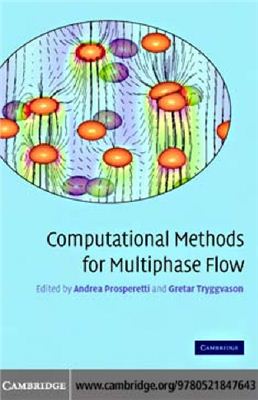Cambridge University Press, 2007. 481 p. ISBN-10:0-511-29454-9;
ISBN-13:978-0-511-29454-9
Predicting the behavior of multiphase flows is a problem of immense importance for both industrial and natural processes. Thanks to high-speed computers and advanced algorithms, it is starting to be possible to simulate such flows numerically. Researchers and students alike need to have a one-stop account of the area, and this book is that: it's a comprehensive and self-contained, graduate-level introduction to the computational modeling of multiphase flows. Each chapter is written by a recognized expert in the field and contains extensive references to current research. The book is organized so that the chapters are fairly independent to enable it to be used for a range of advanced courses. No other book offers the simultaneous coverage of so many topics related to multiphase flow. It will be welcomed by researchers and graduate students in engineering, physics, and applied mathematics.
Predicting the behavior of multiphase flows is a problem of immense importance for both industrial and natural processes. Thanks to high-speed computers and advanced algorithms, it is starting to be possible to simulate such flows numerically. Researchers and students alike need to have a one-stop account of the area, and this book is that: it's a comprehensive and self-contained, graduate-level introduction to the computational modeling of multiphase flows. Each chapter is written by a recognized expert in the field and contains extensive references to current research. The book is organized so that the chapters are fairly independent to enable it to be used for a range of advanced courses. No other book offers the simultaneous coverage of so many topics related to multiphase flow. It will be welcomed by researchers and graduate students in engineering, physics, and applied mathematics.

